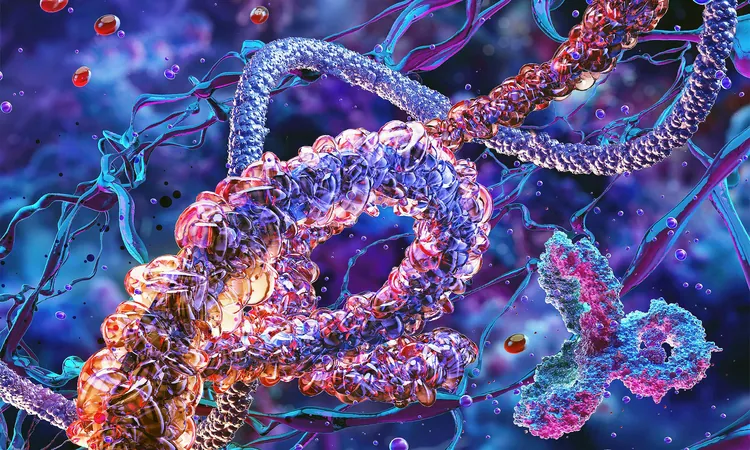
From Diet Change to Delusion: A Man's Terrifying Journey with AI Guidance
2025-08-08
Author: Jia
The AI Diet Disaster
Imagine turning to an AI for diet advice and ending up in the emergency room! That's exactly what happened to a 60-year-old man who ventured into uncharted dietary territory after consulting ChatGPT. Just three months into his new regimen, he found himself battling alarming psychiatric symptoms—paranoia and hallucinations that drove him to seek urgent medical help.
The Bromide Breakdown
What he didn’t expect was to be diagnosed with bromism, a syndrome resulting from excessive exposure to bromide, a chemical compound. He had been unwittingly consuming sodium bromide, obtained through an online purchase, instead of ordinary table salt. This alarming case was documented in the Annals of Internal Medicine Clinical Cases.
A Lesson in AI Limitations
When contacted about this incident, OpenAI, the company behind ChatGPT, reinforced that their platform is not intended to manage health conditions, urging users to seek professional medical advice instead. Despite the conveniences of AI, they acknowledged the risks of relying on decontextualized information.
Bromism: A Rare Toxic Trap
Historically, bromide was a common ingredient in various prescriptions, especially in the 19th and 20th centuries. However, its long-term use led to bromism, characterized by serious neuropsychiatric effects including agitation and delusions. While rare today, cases like this highlight ongoing issues, especially with the rise of unregulated dietary supplements.
The Personal Experiment Gone Wrong
Motivated by concerns over table salt, the man embarked on a personal experiment to eliminate chloride from his diet, believing that bromide might serve as an alternative. His experience with ChatGPT led him to dangerously swap sodium chloride for sodium bromide, a move that would prove disastrous.
Emergency Room Revelations
Upon arrival at the hospital, he was convinced his neighbor was poisoning him. Tests revealed significant issues in his blood that pointed to bromism. As the doctors pieced together the puzzle, they found confirmation of his bromide exposure, leading to a potential diagnosis.
The Recovery Journey
After an intensive hospital stay with electrolyte management, the man's condition stabilized, but not before fleeting episodes of paranoia and hallucinations caused him to try escaping the hospital. His subsequent treatment included antipsychotic medication, and he eventually regained his mental clarity.
The Takeaway: Caution in the Age of AI
This incredible case underscores the importance of discerning the information we consume, especially from AI sources. As healthcare providers anticipate an increasing reliance on AI, the lessons learned from this man’s unfortunate experience highlight the need for thorough vetting of health information.





 Brasil (PT)
Brasil (PT)
 Canada (EN)
Canada (EN)
 Chile (ES)
Chile (ES)
 Česko (CS)
Česko (CS)
 대한민국 (KO)
대한민국 (KO)
 España (ES)
España (ES)
 France (FR)
France (FR)
 Hong Kong (EN)
Hong Kong (EN)
 Italia (IT)
Italia (IT)
 日本 (JA)
日本 (JA)
 Magyarország (HU)
Magyarország (HU)
 Norge (NO)
Norge (NO)
 Polska (PL)
Polska (PL)
 Schweiz (DE)
Schweiz (DE)
 Singapore (EN)
Singapore (EN)
 Sverige (SV)
Sverige (SV)
 Suomi (FI)
Suomi (FI)
 Türkiye (TR)
Türkiye (TR)
 الإمارات العربية المتحدة (AR)
الإمارات العربية المتحدة (AR)